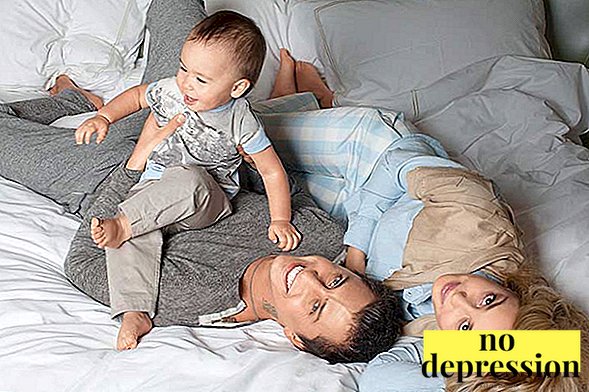Albert Einstein. Stephen King, Jim Carrey admitted that they were too shy in childhood. But found a way to deal with this problem. Sometimes reticence develops into anxiety disorder and generates fear of disapproval or ridicule. The brain understands the absurdity of the situation, but the subconscious mind beats in hysterics - something similar to those experienced by social phobia in any communication. The article will tell you where social phobia comes from and how it is treated, as well as how to test yourself on the main features of a social phobia.
Who is a social phobia
Social phobia is a person suffering from social phobia who cannot be in society at all. The main fear of social phobia is what assessment will strangers give it? A sensible remark that they are not interested in strangers is not reassuring. On the contrary, unreasonable horror before the assessment, ridicule causes panic attacks and turns life into a continuous nightmare. Fear of condemnation is accompanied by real symptoms: trembling in the hands, feeling hot or cold, nausea, redness.
What is social phobia
Social phobia is an acquired and pathological condition that provokes negative life experiences. To put it another way - this is a neurosis that arises in the collision of high ambitions and low self-esteem. Sociophobia - one of the most common and little-studied mental disorders. According to various estimates, from 2 to 13% of the population suffer from the fear of society, with the largest audience living in the socially developed countries of America and Europe. The average age of 15-20 years.
Uncontrollable anxiety, prolonged emotional distress, and a regular or repeated fear of social situations or situations in which success is assessed are characteristic of social phobia. Its manifestations are diverse: someone is panicky afraid to speak in front of a large audience, someone does not answer the phone calls, is afraid to openly object or panic at the mere thought of shopping in a large store.
Sociophobes are often confused with sociopaths.. But these are different deviations: if the former are simply afraid of people, then sociopaths with their perverted ideas about morality simply don’t care about others. Although the presence of a person of one disorder does not exclude the presence of another. Different social phobias and introverts. Introversion is an innate ability that is manifested in the love of loneliness. Social phobia suffers from loneliness, is in need and at the same time afraid of communication.
Causes of social phobia
Social phobia is recognized as an independent mental illness 20 years ago. Although in scientific studies of anxiety, contact neurosis diseases were mentioned, social anxiety.
Fear at the heart of social phobia - a mandatory component of the biological needs please others. We all went through this stage of development when, in early childhood, we started hiding from strangers. Gradually, we learned to survive in society, observing its norms. In case of violation of generally accepted rules, the brain sent us signals of shame, embarrassment, or feelings of guilt. Moderate doses of such sensations are a regulator of behavior, on which our ability to negotiate with other people depends.
But sometimes fear becomes a problem and makes it difficult to live. This is associated with a genetic tendency, which increases the risk of social phobia by 30-50%, with education or with psychological trauma. The first signs of social phobia appear in adolescence aged 13-15. If you do not go to the doctor in time, the phobia will increase.
There are many social phobia triggers. But there are general laws:
Come from childhood.
Fear of society does not create natural modesty or shyness. The risk of developing social phobia increases parental coldness or excessive care. If a child is regularly compared with more successful or beautiful children, criticized or mocked, then, as an adult, he will also wait for a conviction. Conversely, children who are over praised do not receive the expected approval of others. As a result, anxious neurosis develops.
Sated with social contacts.
If it is easy for an extrovert to talk to a stranger, solve work issues by telephone or take a walk in a crowd, then for a less contact person such actions cause difficulty. It is then that the desire to hide from others, to rest from the negotiations causes mild social phobia, which can turn into a neurotic fear of people or companies.
Fear of appreciation.
Puberty is an alarming period already. If difficult relationships with the family, rejection and criticism of a teenager are imposed on him, there is a fear of a negative assessment. Sometimes the fear of condemnation becomes painful or even intolerable. The fear of appearing silly, looking ridiculous, making a mistake is annoying: the body ceases to obey, the hands go numb, hiccups or stutters begin. In this case, the fear of disapproval also results in a phobia.
Fear of any action in public.
The basis of this fear is still the same low self-esteem. The peculiar mask of low self-esteem takes too much energy to please others, do the right thing and live up to expectations. It’s hard for an insecure person to say no and have to live in constant anticipation of praise. If praise is not enough, anxiety increases. As a result, a phobia develops.
Fear of non-existent danger.
This is generally the main root of any phobias and not only social. People who are not able to resist such a negative attitude towards life, all the time waiting for the worst. And it seems that something terrible is sure to happen right now. The behavior of strangers seems frightening: sudden movement or unexpected laughter can cause unpredictable reactions. And in the end - a new phobia.
But we must learn to distinguish between healthy isolation and self-sufficiency from pathological phobias. Typical situations similar to social phobia are introversion, sociopathy, narcissistic experiences, purposeful non-communicativeness and ordinary boredom.
How to recognize a social phobia
For "ordinary" people it seems strange - how is it to be afraid of others in a safe environment of a cafe, gym or movie theater. But in such situations, social phobia feel anxiety, nausea, and continuous waves of panic attacks. There is some good news: this anxiety disorder responds well to medication and psychotherapy. Although it is difficult to completely get rid of the problem, it can be controlled.
Psychologists do not advise to get involved in self-diagnosis, but first you need to test yourself for nine signs of social phobia:
- You make up a script for a future conversation in advance to minimize the risk of saying something stupid or inappropriate.
- You are constantly waiting for the hostile behavior of others, even if you realize that this is stupid.
- You avoid meetings with acquaintances and strangers, prefer SMS to live conversations.
- You make appointments, but feel relieved if they are canceled.
- You blame yourself for embarrassment, inability to talk, lack of social skills.
- You feel embarrassed because of your actions and words after talking to other people.
- You feel mental and physical signs of panic: pulse and heartbeat quicken, pupils dilate, hands tremble.
- You want to communicate, but avoid communication to reduce anxiety.
- You observe all the listed signs for more than six months.
If a person is personally prone to anxiety or phobia, no treatment will save him from the usual reactions. But against the background of therapy, one can realize the groundlessness of one’s fears, learn how to communicate normally and make friends.
Treatment methods
Social phobia is treated with a combination of drugs and psychotherapy. Medications only relieve anxiety symptoms and autonomic manifestations. With the help of a therapist, the patient studies the mechanisms that trigger social phobia. Best of all coping with the problem of behavioral psychotherapy.
Psychotherapy: Steps and Secrets
Ideally, psychotherapy is carried out simultaneously in an individual and group format:
On the first individual session the therapist will ask the client to tell his story. Only after a complete analysis of the root causes can move on.
On group therapy the therapist offers relaxing exercises, teaches patients to correctly recognize non-verbal signals. At 7-8 classes, the client is asked to tell about himself in front of a group of other people. After the therapist asks patients to play scenes where they deliberately put each other in awkward situations. This is how a new type of behavior is developed that helps to adapt in an unfamiliar society.
In individual therapy work is done with automatic thoughts and behavioral responses. This may be a mental movie in which the client plays the most terrible situation and learns to react in ways that reduce the public's fear. Reincarnation works well. Playing on behalf of a stranger allows you to look at yourself from the outside, overcome stiffness, indecision.
The doctor helps the patient with tips on how to maintain posture. To feel confident, you need to straighten your shoulders, raise your head, look in the eyes of your interlocutor. Therapy takes place not only in the therapist's office, but also in other conditions: at home, on the street, at work. First, you can do your homework alone in front of a mirror. Then practice your loved ones. After the first successes, you can go to the place where the anxiety manifested itself most of all.
What can be done now
Social phobia is also called the "disease of missed opportunities." After all, it deprives of the chance to find a couple, a decent job, friends. There is a vicious circle: the more a person is afraid of the opinions of others, the more he closes himself, becomes unsociable and aggravates anxiety even more.
To acknowledge a problem is half the work. Volunteering will help to establish contacts with new people. It is known that helping others makes us feel better and start looking at others with optimism. Altruistic actions with standard social interaction help the social phobia to adapt to the new team. It can be big promotions or a little help: help a neighbor walk a dog, bring heavy bags to an elderly person, tell a stranger how to find the right street.
Another original way to get rid of the fear of society is diet. It turns out that intestinal microflora affects our well-being much more than we used to think. According to some theories, beneficial bacteria stimulate the production of hormones of pleasure, happiness, peace and thereby improve mood. Another plus diet - to start it, you have to start online communication with new people. And this can be a non-traumatic entry into a new relationship.
findings:
- Social phobia is an irrational fear that we will not be accepted or negatively accepted in society.
- Sotsiofob suffers low self-esteem, high sensitivity to criticism, fear of negative evaluation of others.
- The risk of developing disorders increases children's problems and fears.
- There are ready-made tests for self-diagnosis of the disorder, but it is better to contact a psychotherapist for a diagnosis.
- Fear of society is treated comprehensively: drugs and psychotherapy.



